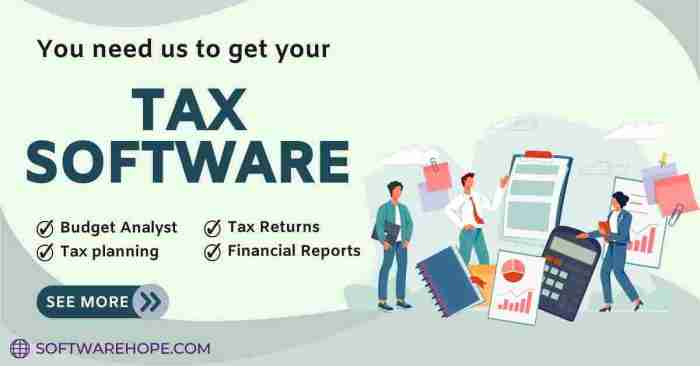Sales tax software for small business simplifies a complex process, offering a lifeline to entrepreneurs navigating the often-confusing world of sales tax compliance. Streamlining tax calculations, filing, and reporting, these tools can save small business owners valuable time and resources, allowing them to focus on what truly matters: growing their business. Efficient software solutions ensure accuracy, minimizing the risk of penalties and audits, and ultimately contributing to a healthier financial bottom line.
From simple point-of-sale integrations to sophisticated accounting software packages with built-in tax features, the market offers a range of options to suit different business sizes and needs. Understanding the key features and functionalities of various sales tax software packages is crucial for making an informed decision that best supports a small business’s specific operational requirements and growth trajectory. Factors such as ease of use, integration with existing systems, and cost-effectiveness should all be considered when choosing the right solution.
Navigating the complexities of sales tax can be a significant challenge for small business owners. Accurate tax calculation and filing are crucial not only for compliance but also for maintaining financial health. Fortunately, sales tax software offers a powerful solution, automating many of the tedious tasks and minimizing the risk of costly errors. This comprehensive guide will explore the benefits, features, and considerations involved in choosing the right sales tax software for your small business.
Understanding the Importance of Sales Tax Software for Small Businesses
For small businesses, managing sales tax often feels like an extra burden on already limited time and resources. Manual calculations are prone to mistakes, leading to potential penalties and audits from tax authorities. Sales tax software offers a range of advantages, including:
- Accuracy: Automated calculations eliminate human error, ensuring precise tax calculations on every transaction.
- Efficiency: Streamline the entire sales tax process, saving valuable time and resources.
- Compliance: Stay updated with constantly changing state and local sales tax laws and regulations.
- Reporting: Generate accurate and comprehensive sales tax reports for filing with relevant tax authorities.
- Integration: Seamlessly integrate with other business software, such as accounting and point-of-sale (POS) systems.
- Reduced Risk: Minimize the risk of penalties and audits associated with inaccurate tax reporting.
Key Features to Look for in Sales Tax Software
When choosing sales tax software, consider the following essential features:
Tax Rate Calculation and Automation
The core function of any sales tax software is accurate tax rate calculation. Look for software that automatically determines the correct tax rate based on the customer’s location (address) and the type of goods or services sold. This often involves features like:
- Address-Based Tax Calculation: Automatically identifies the applicable tax rate based on the billing or shipping address.
- Product-Based Tax Codes: Assigns specific tax codes to products or services to ensure accurate tax application.
- Nexus Management: Tracks your business’s sales tax nexus (the connection between your business and a state that requires you to collect sales tax) and automatically adjusts tax calculations accordingly. This is crucial for businesses operating in multiple states.
Sales Tax Reporting and Filing
Efficient reporting and filing are critical for compliance. Essential features include:
- Automated Report Generation: Generate sales tax reports in the required formats for various states and jurisdictions.
- Electronic Filing: Directly file sales tax returns electronically, saving time and effort.
- Customizable Reports: Tailor reports to meet your specific business needs and reporting requirements.
Integration with Other Business Systems
Seamless integration with existing business software is crucial for maximizing efficiency. Look for software that integrates with:
- Accounting Software: Integrate with popular accounting software like QuickBooks, Xero, or Zoho Books for streamlined financial management.
- Point-of-Sale (POS) Systems: Integrate with your POS system to automatically calculate and record sales tax at the point of sale.
- E-commerce Platforms: Integrate with platforms like Shopify, WooCommerce, or Magento to automate sales tax calculations for online sales.
Other Important Considerations, Sales tax software for small business
- Pricing and Subscription Models: Compare pricing plans and subscription models to find the best fit for your budget.
- Customer Support: Ensure the software provider offers reliable customer support through phone, email, or chat.
- Scalability: Choose software that can adapt to your business’s growth and changing needs.
- Security: Prioritize software with robust security measures to protect your sensitive financial data.
- User-Friendliness: Select software with an intuitive interface that is easy to learn and use, even without extensive technical expertise.
Top Sales Tax Software Options for Small Businesses
Several reputable software providers cater to the needs of small businesses. Research and compare features, pricing, and reviews before making a decision. Some popular options include (Note: This is not an exhaustive list and specific features and pricing may vary):

Source: newsweek.com
- Avalara
- TaxJar
- Sales Tax Pro
- QuickBooks Online (with sales tax features)
- Xero (with sales tax features)
Remember to check for current reviews and compare features before making your choice.
Frequently Asked Questions (FAQ)
Here are some frequently asked questions about sales tax software for small businesses:

Source: softwarehope.com
- Q: Do I need sales tax software if I’m a small business? A: While not strictly mandatory for all small businesses, sales tax software significantly reduces the risk of errors, saves time, and ensures compliance, making it highly recommended.
- Q: How much does sales tax software cost? A: Pricing varies greatly depending on the provider and features offered. Expect to pay a monthly or annual subscription fee.
- Q: Can sales tax software handle multiple states? A: Yes, many sales tax software solutions can handle sales tax calculations and reporting for businesses operating in multiple states.
- Q: How do I choose the right sales tax software for my business? A: Consider your business size, sales volume, number of states you operate in, and budget. Compare features, pricing, and reviews before making a decision.
- Q: Is sales tax software difficult to use? A: Most modern sales tax software is designed with user-friendliness in mind. However, some may have a steeper learning curve than others.
- Q: What happens if I make a mistake with my sales tax? A: Mistakes can lead to penalties and audits from tax authorities. Sales tax software helps minimize these risks.
Choosing the Right Sales Tax Software: A Final Note
Implementing the right sales tax software is a strategic investment for any small business. By automating tax calculations, simplifying reporting, and ensuring compliance, you can free up valuable time and resources to focus on growing your business. Take the time to research and compare different options to find the perfect solution for your specific needs. Remember to check for updates and changes in tax laws regularly.
This ensures you remain compliant and avoid potential penalties.
References
While specific product websites are constantly updated, general information on sales tax can be found through resources like the IRS website and state tax agency websites. Always consult with a tax professional for personalized advice.

Source: straight.com
Call to Action: Sales Tax Software For Small Business
Ready to simplify your sales tax management and focus on what matters most – growing your business? Explore the options mentioned above and choose the sales tax software that best fits your needs. Start your free trial today and experience the benefits of streamlined sales tax compliance!
Ultimately, selecting the appropriate sales tax software is a critical step in ensuring the long-term financial health and stability of any small business. By investing in a robust and user-friendly system, entrepreneurs can navigate the complexities of sales tax compliance with confidence, freeing up valuable time and energy to focus on core business objectives and achieving sustainable growth. The right software can transform a potentially daunting task into a manageable and efficient process, fostering peace of mind and contributing to overall business success.
Frequently Asked Questions
What happens if I don’t use sales tax software?
Failure to accurately calculate and remit sales taxes can result in penalties, interest charges, and potential legal issues with tax authorities.
How do I choose the right software for my business?
Consider factors like your business size, sales volume, the number of states you operate in, and your budget. Look for software that integrates with your existing accounting system and offers features like automated tax calculations and reporting.
Is sales tax software expensive?
Pricing varies widely depending on features and provider. Many offer tiered pricing plans to accommodate businesses of different sizes and needs. The cost savings from avoiding penalties often outweigh the software expense.
Can sales tax software integrate with my existing POS system?
Many sales tax software solutions offer seamless integration with popular point-of-sale systems, streamlining the process of collecting and reporting sales tax data.
What if I have questions about using the software?
Most reputable providers offer customer support options, including phone, email, and online resources, to assist users with any questions or technical issues.
